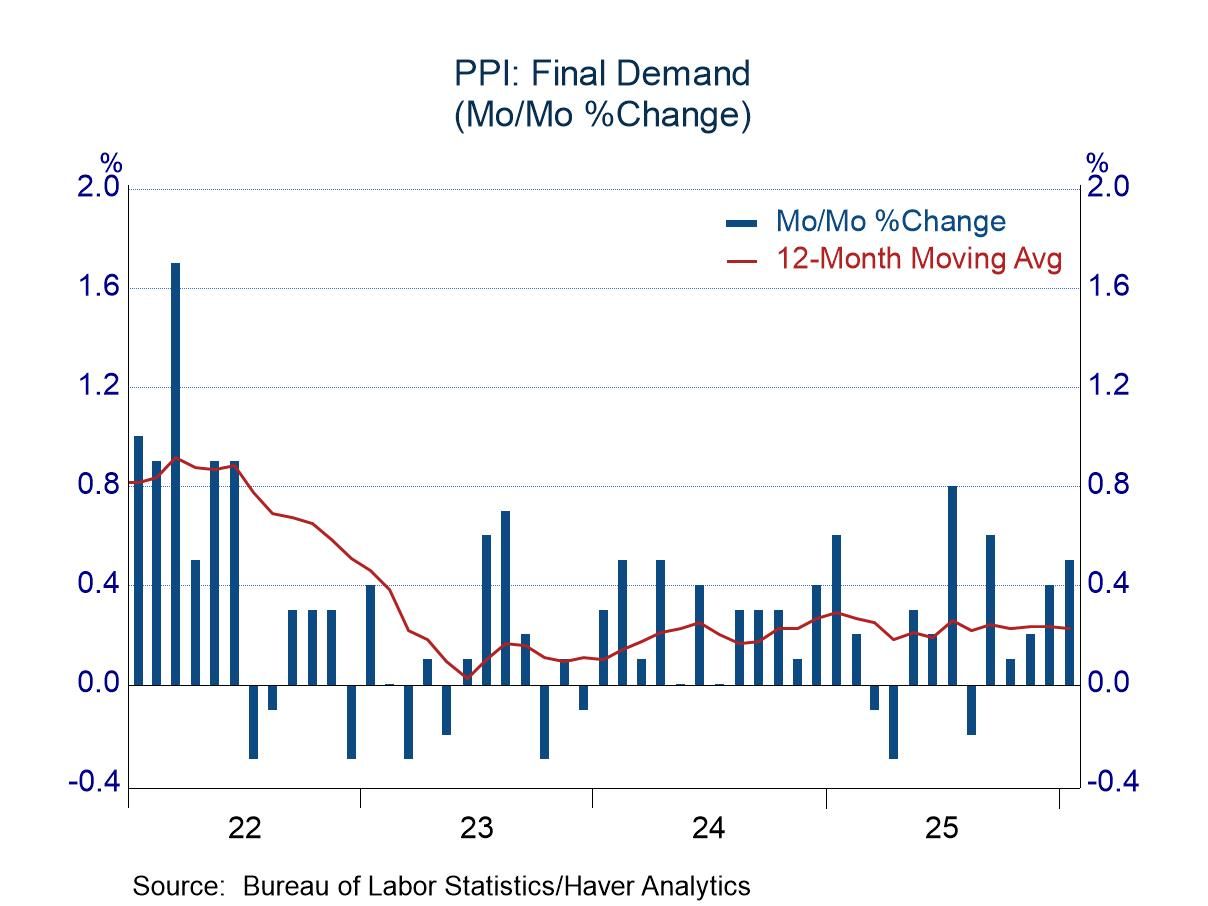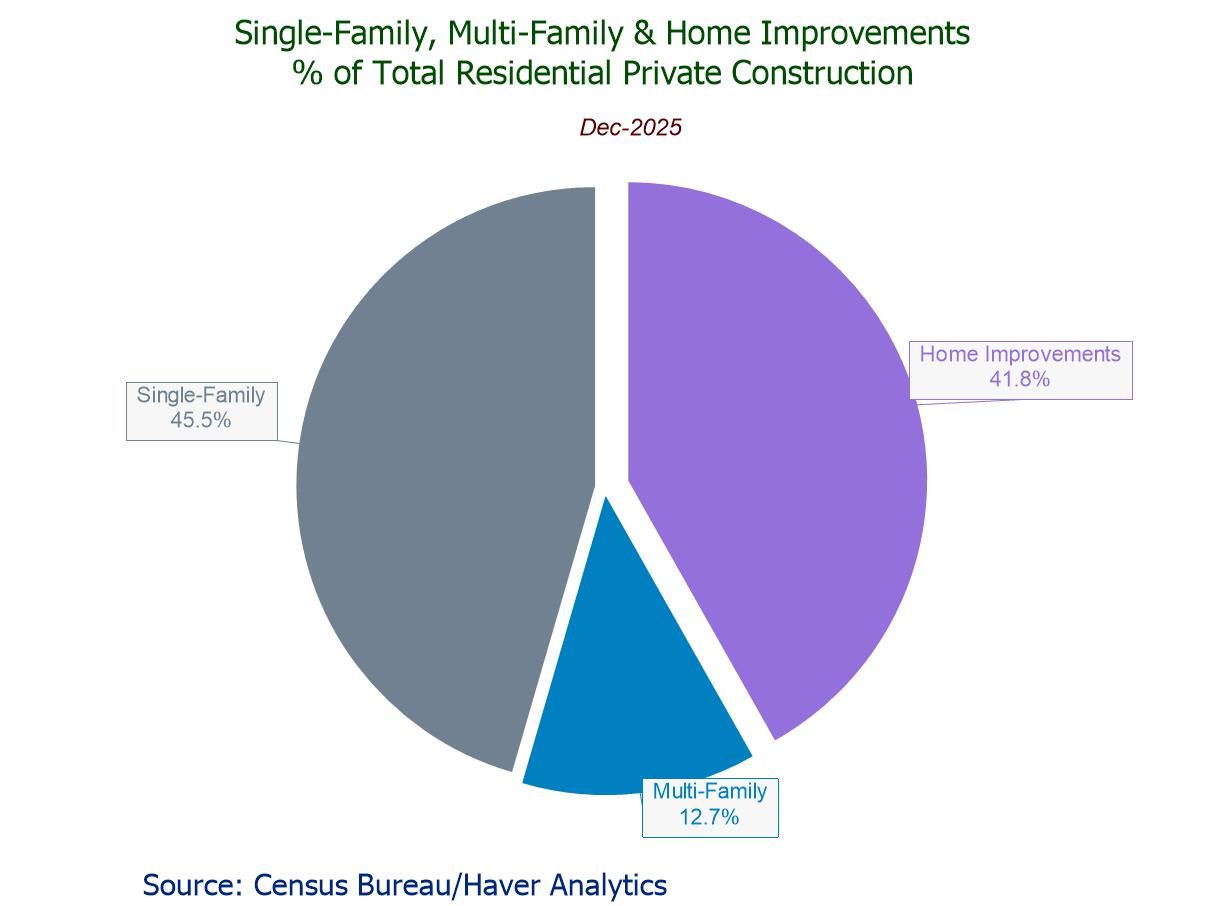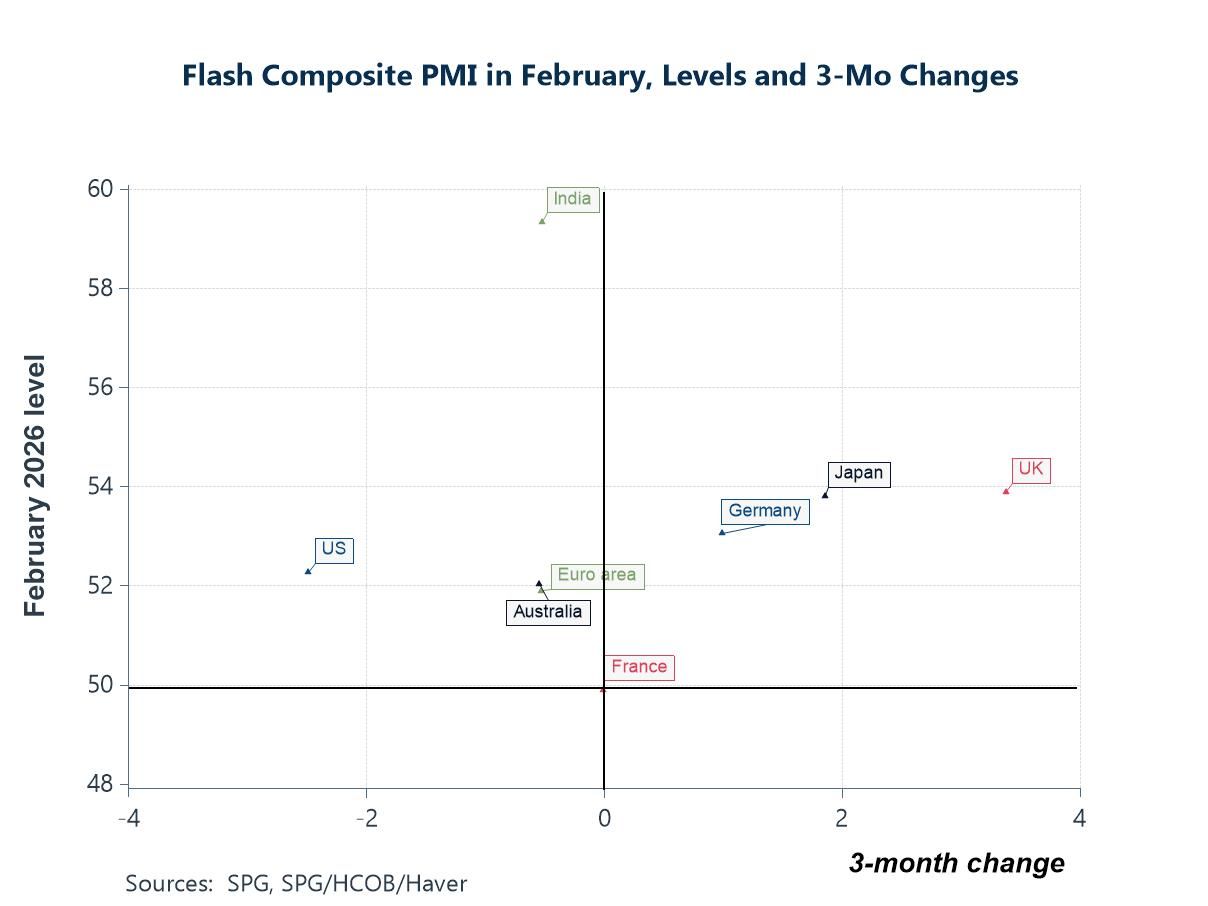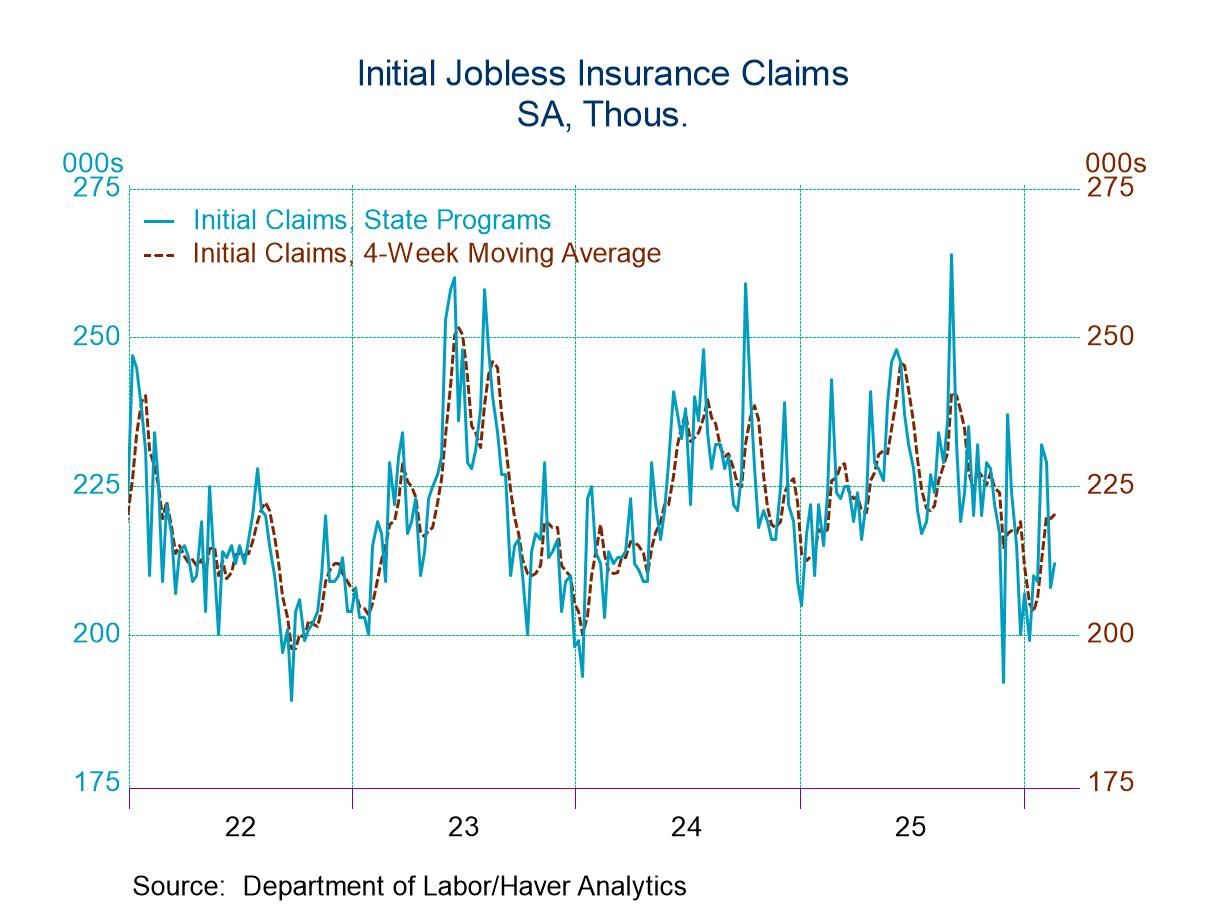 Global| Dec 26 2009
Global| Dec 26 2009U.S. Consumer Confidence Improves Modestly
by:Tom Moeller
|in:Economy in Brief
Summary
The consumer's mood regarding the economy has improved, but after the jump last spring little headway developed. The Conference Board indicated that consumer confidence during January rose 4.3% from December after similar gains during [...]
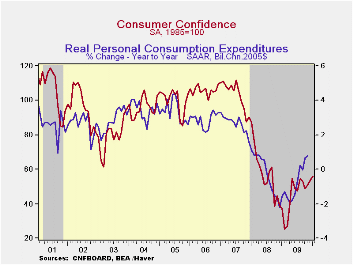 The
consumer's mood regarding the economy has improved, but after the jump
last spring little headway developed. The Conference Board indicated
that consumer confidence during January rose 4.3% from December after
similar gains during the prior two months. Due to earlier declines,
however, these increases left confidence roughly equal to last May. The
Conference Board data can be found in Haver's CBDB
database.
The
consumer's mood regarding the economy has improved, but after the jump
last spring little headway developed. The Conference Board indicated
that consumer confidence during January rose 4.3% from December after
similar gains during the prior two months. Due to earlier declines,
however, these increases left confidence roughly equal to last May. The
Conference Board data can be found in Haver's CBDB
database.
Despite the loss of forward momentum confidence remained up roughly one-half from last January. During the last ten years there has been an 87% correlation between the level of consumer confidence and the y/y change in real consumer spending.
Consumers' assessment of the current economic conditions jumped by one-quarter this month but only back to last summer's high. It remained near the historic low. Jobs were seen as hard to get by 47.4% of respondents and jobs were seen as plentiful by only 4.3%. That was up just slightly from the series' historic low. Business conditions were seen as good by only 9.0% and that also was near the series' low. Consumers who thought business conditions were bad rose slightly to 46.1%. While off somewhat from its high the reading was still nearly the highest since 1983. · The expectations component of confidence improved slightly m/m and the index remained near the highest level since late-2007. Most expected business conditions & employment to remain the same and that's a vast improvement from the deterioration seen last winter. Expectations for the inflation rate in twelve months held stable at 5.3%, the lowest level since 2007 and down from last year's high of 7.7%. Interest rates in twelve months were expected to be higher by an increased 52.3% of respondents, while a reduced 12.5% expected rates to fall. A greatly increased 36.3% of respondents expected stock prices to rise.
Consumers continued to manage their spending plans cautiously. A reduced 1.8% plan to buy a home during the next six months while just 24.7% plan to buy a major appliance. That's versus 30.9% back in 2007. Only 5.1% plan to buy an automobile versus 6.0% in 2007. Just 2.0% plan to buy a new one.
Real Time Underlying Inflation Gauges for Monetary Policymakers from the Federal Reserve Bank of New York is available here.
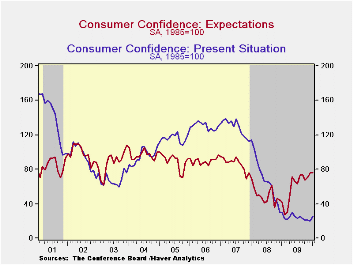
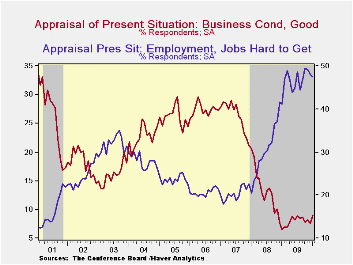
| Conference Board (SA, 1985=100) | January | December | November | Y/Y % | 2009 | 2008 | 2007 |
|---|---|---|---|---|---|---|---|
| Consumer Confidence Index | 55.9 | 53.6 | 50.6 | 49.5 | 45.2 | 57.9 | 103.4 |
| Present Situation | 25.0 | 20.2 | 21.2 | -15.8 | 24.0 | 69.9 | 128.8 |
| Expectations | 76.5 | 75.9 | 70.3 | 80.0 | 59.3 | 50.0 | 86.4 |
Tom Moeller
AuthorMore in Author Profile »Prior to joining Haver Analytics in 2000, Mr. Moeller worked as the Economist at Chancellor Capital Management from 1985 to 1999. There, he developed comprehensive economic forecasts and interpreted economic data for equity and fixed income portfolio managers. Also at Chancellor, Mr. Moeller worked as an equity analyst and was responsible for researching and rating companies in the economically sensitive automobile and housing industries for investment in Chancellor’s equity portfolio. Prior to joining Chancellor, Mr. Moeller was an Economist at Citibank from 1979 to 1984. He also analyzed pricing behavior in the metals industry for the Council on Wage and Price Stability in Washington, D.C. In 1999, Mr. Moeller received the award for most accurate forecast from the Forecasters' Club of New York. From 1990 to 1992 he was President of the New York Association for Business Economists. Mr. Moeller earned an M.B.A. in Finance from Fordham University, where he graduated in 1987. He holds a Bachelor of Arts in Economics from George Washington University.



